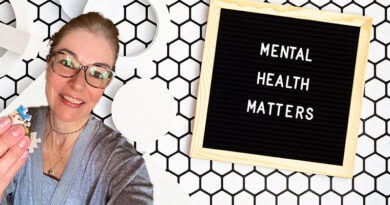Why Eating for Pleasure Is Important: How Food Nourishes the Body and Mind
When it comes to eating, most of us think about the nutritional value of the food. What are we getting from this meal? However, what about pleasure? Eating for pleasure is just as important as eating for nourishment. In this article, we’ll explore why pleasure matters and how it can benefit your body and mind.
There are many reasons why pleasure matters when it comes to eating. First, when you eat with pleasure, you’re more likely to eat mindfully. This means that you’ll be paying attention to the flavors and textures of your food, and you’ll be more likely to enjoy it. When you enjoy your food, you’ll be less likely to overeat or indulge in unhealthy foods.
Second, when you eat with pleasure, you’re nourishing your body and mind. Eating good food can boost your mood and make you feel happier. It can also improve your cognitive function and help you focus better. Plus, a healthy diet is essential for maintaining a healthy weight and preventing chronic diseases.
So if you’re looking for an excuse to indulge in your favorite foods, go ahead! Eating for pleasure is an important part of a healthy diet. Just make sure you’re also getting the nutrients your body needs. Enjoy your food and be mindful of what you’re eating – and you’ll be on your way to better health!
How Important is good nutrition when you have a Chronic Health Condition?
Good nutrition is important for everyone, but it is especially important for people with chronic health conditions. Eating nutritious foods can help keep these conditions under control and can even help prevent them from developing in the first place.
Some of the most important nutrients for people with chronic health conditions are fiber and antioxidants. Fiber helps keep the digestive system working properly, while antioxidants help protect cells from damage. Both of these nutrients are found in fruits and vegetables, so it is important to make sure you are getting plenty of them in your diet.
Other nutrients that are important for people with chronic health conditions include omega-3 fatty acids, vitamin D, and magnesium. Omega-3 fatty acids help protect the heart, vitamin D is essential for bone health, and magnesium helps regulate blood sugar levels. All of these nutrients can be found in healthy foods like fish, eggs, and nuts.
Eating a healthy diet is one of the best ways to manage chronic health conditions. By eating nutritious foods, you can not only improve your overall health but also reduce your risk of developing serious health problems down the road.
Your habits may be damaging your relationship with food.
Many people have unhealthy habits and a negative relationship with food. They eat when they’re not hungry, diet when they’re not overweight, and punish themselves with food when they make a mistake. This approach to food can lead to disordered eating habits and an unhealthy relationship with food.
Eating disorders are serious mental health conditions that can have damaging effects on your physical health, emotional well-being, and relationships.
If you have unhealthy habits and a negative relationship with food, it’s important to seek help from a professional. They can help you develop a healthier approach to eating and living. With the right help, you can learn to enjoy food again and develop a healthy relationship with it.
What are the most common eating disorders?
Eating disorders are a group of mental illnesses that are characterized by abnormal eating habits. There are three main types of eating disorders: anorexia nervosa, bulimia nervosa, and binge-eating disorder.
Anorexia nervosa is a condition in which a person intentionally restricts their food intake in order to lose weight. People with anorexia often have a distorted view of their body image and believe that they are overweight even when they are dangerously thin.
Bulimia nervosa is a condition in which a person binge-eats and then tries to purge the food from their body by vomiting, using laxatives, or exercising excessively. People with bulimia often feel ashamed and guilty about their eating habits and often hide their behavior from others.
Binge-eating disorder is a condition in which a person regularly eats large amounts of food in a short period of time and feels out of control during the binges. People with binge-eating disorder often feel ashamed and embarrassed about their eating habits and often try to hide them from others.
Does meditation help with an eating disorder?
When you’re meditating, you’re learning to focus on your breath and to become more aware of what’s happening in the present moment. This can be helpful when you’re struggling with an eating disorder because it can help you to become more aware of your body and your Eating habits.
When you’re more aware of what you’re Eating, you can start to make changes to your Eating habits that will be healthier for you. You may also find that you enjoy Eating more when you’re meditating because you’re focusing on the taste and texture of the food instead of on how much weight you want to lose. Meditation can also help you to deal with any stress or anxiety that may be contributing to your Eating disorder.
Can eat for pleasure helps to change my eating disorder?
Both eating for pleasure and meditation can help us to connect with our bodies and minds in a positive way. They can help us to break the cycle of restriction and guilt, and they can teach us how to be more present at the moment. If you are struggling with an Eating Disorder, consider trying out both of these techniques!
What should I do if I have an eating disorder?
If you’re struggling with an eating disorder, the most important thing you can do is get help. Eating disorders can be extremely dangerous and can cause serious health problems if left untreated.
If you think you might have an eating disorder, or if your eating habits are causing you distress, see a doctor or mental health professional. There are many treatments available for eating disorders, so there’s no need to suffer in silence.
Don’t be afraid to ask for help – it could save your life.




